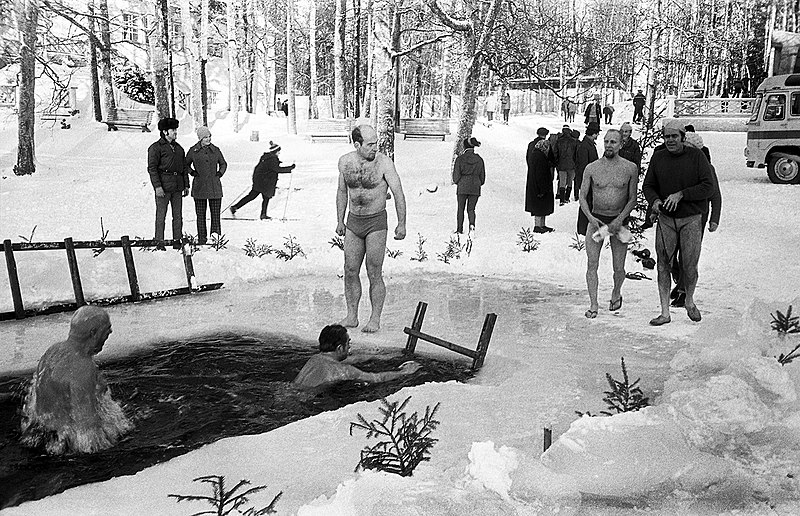Cold plunging, or immersing oneself in cold water, is a practice that has been gaining popularity in recent years. While the benefits of cold plunging are still being researched, there are several potential advantages and benefits that have been suggested:
Reduces inflammation: Cold water has been shown to reduce inflammation in the body. Inflammation is linked to several chronic health conditions, including heart disease, arthritis, and cancer.
Increases circulation: Exposure to cold water can increase blood flow and circulation in the body. This can help deliver oxygen and nutrients to the body’s tissues and organs.
Boosts immune function: Cold water exposure has been shown to increase the production of white blood cells, which help fight off infections and diseases.
Improves mood: Cold water exposure has been shown to improve mood and reduce symptoms of depression and anxiety. This may be due to the release of endorphins, which are natural mood-boosting chemicals in the body.
Enhances athletic performance and recovery: Cold water exposure has been shown to reduce muscle soreness and improve athletic performance and recovery.
Increases alertness and mental clarity: Exposure to cold water can increase alertness and mental clarity, helping individuals feel more awake and focused.
Cold plunging may not be appropriate for everyone. Individuals with certain medical conditions, such as heart disease or Raynaud’s disease, should speak to a healthcare provider before trying cold plunging. Additionally, it’s important to practice cold plunging safely and gradually, starting with shorter exposure times and gradually increasing the duration of exposure over time.
What research on cold-plunging has been carried out?
There has been some research on the potential benefits of cold-plunging, although more studies are needed to fully understand its effects on the body. Here are some examples of research that has been carried out:
Inflammation: A study published in the Journal of Science and Medicine in Sport found that cold water immersion can reduce inflammation and muscle damage in athletes following intense exercise.
Immune function: A small study published in the International Journal of Sports Medicine found that cold water immersion can increase the production of white blood cells, which play a role in immune function.
Athletic performance and recovery: A review of studies published in the International Journal of Sports Physiology and Performance found that cold water immersion may help improve athletic performance and recovery by reducing muscle soreness and fatigue.
Mood: A small study published in Medical Hypotheses found that cold water immersion may have a positive effect on mood and reduce symptoms of depression and anxiety.
Circulation: A study published in the European Journal of Applied Physiology found that cold water immersion can increase blood flow and circulation in the body.
Pain management: A review of studies published in the Journal of Pain Research found that cold water immersion may be an effective method for managing pain in people with musculoskeletal conditions.
More research is needed to fully understand the effects of cold-plunging on the body, and to determine the most effective protocols for using this practice as a therapeutic tool. Additionally, it’s important to practice cold-plunging safely and under the guidance of a healthcare professional.
Here are some quotes by researchers on cold-plunging:
“We found that a single cold water immersion after exercise improved muscle soreness and function in the subsequent days. This might be of interest to people who do not have access to other recovery strategies, such as compression garments or massage.” – Dr. Chris Bleakley, lead author of a study on cold water immersion and muscle soreness.
“Cold exposure releases endorphins and norepinephrine in the brain. Endorphins are naturally produced opioids, and norepinephrine is a hormone and neurotransmitter that can improve mood, attention, and focus.” – Dr. Rhonda Patrick, researcher and expert on cold exposure.
“Cold exposure can have beneficial effects on the immune system, including increasing the production of white blood cells and activating the production of antioxidants.” – Dr. Wim Hof, researcher and expert on cold exposure.
“Cold exposure is a potent stressor that activates multiple physiological pathways. These pathways include the sympathetic nervous system, the hypothalamic-pituitary-adrenal axis, and the immune system.” – Dr. Christopher Lowry, researcher and expert on the effects of cold exposure on the body.
It’s important to note that while researchers are beginning to uncover the potential benefits of cold-plunging, more research is needed to fully understand its effects on the body.

